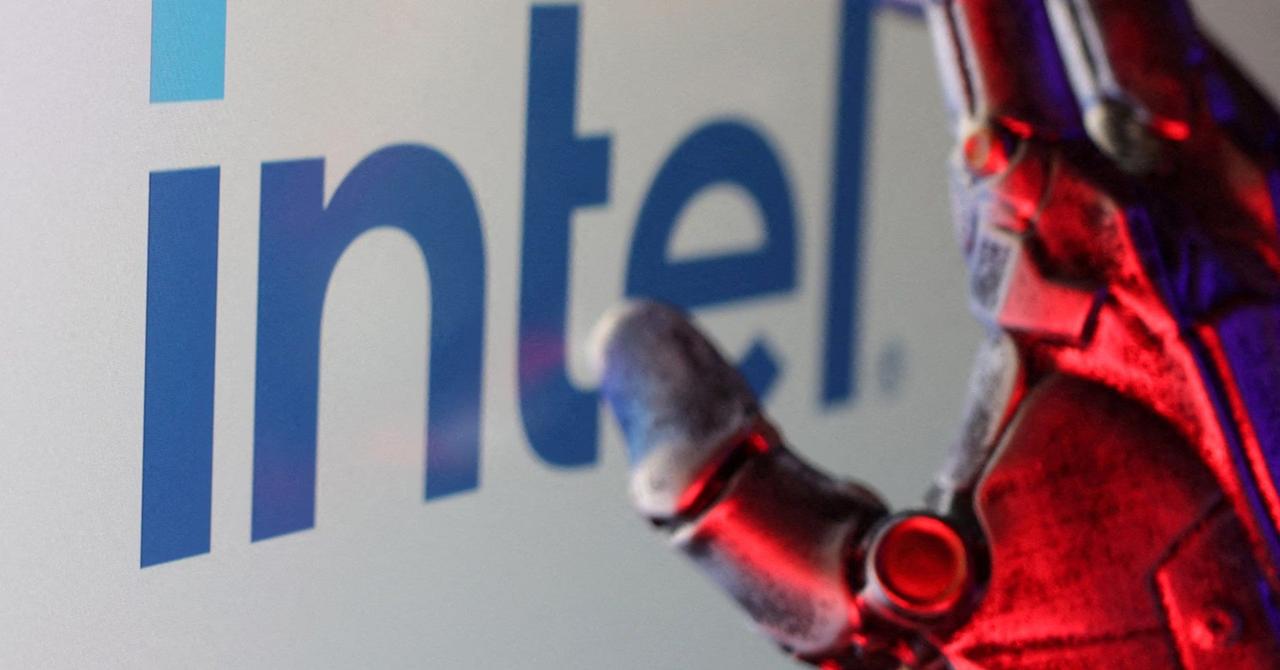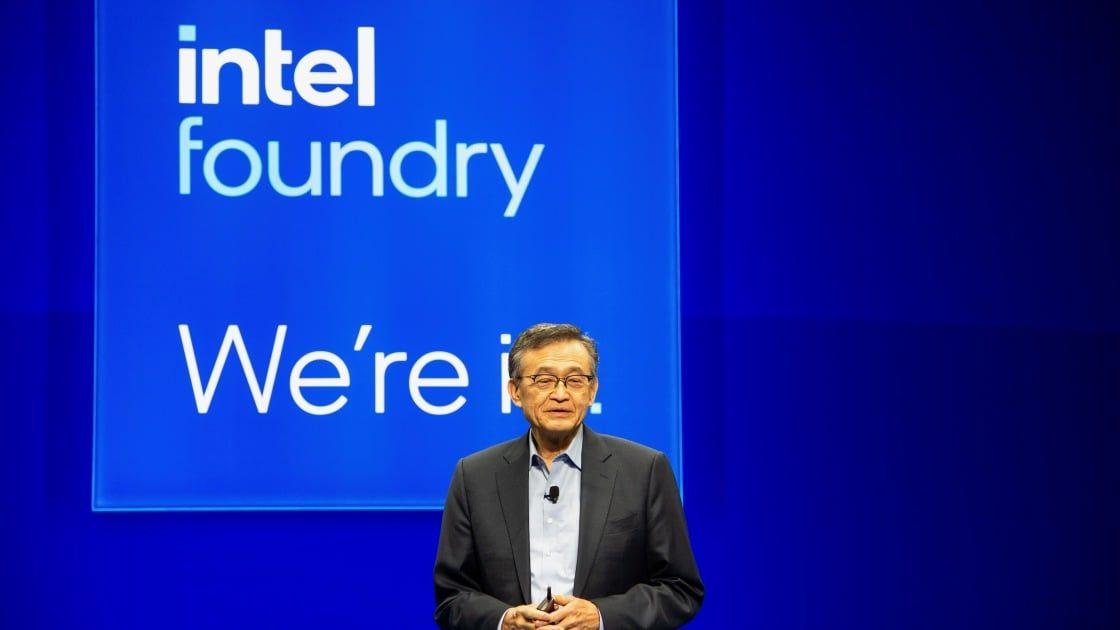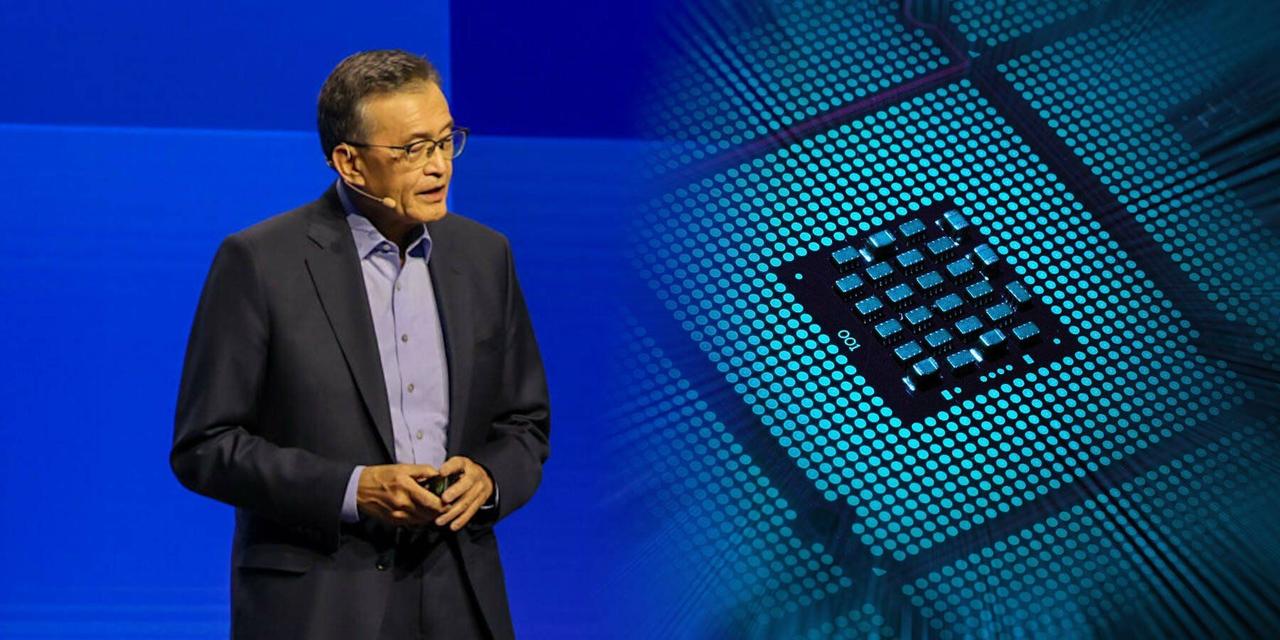Ex-Intel CEO Brian Krzanich's Appointment at AI Firm Cerence Sparks Controversy
3 Sources
3 Sources
[1]
Ex-Intel CEO Brian Krzanich gets blasted over landing a new job at automotive AI company
Serving tech enthusiasts for over 25 years. TechSpot means tech analysis and advice you can trust. What just happened? Former Intel CEO Brian Krzanich has landed a new high-profile gig as the head of automotive AI technology firm Cerence. However, Cerence's announcements celebrating its new hire stirred up intense criticism and backlash from many. It all started with an official Cerence statement last week, proudly touting Krzanich's appointment as CEO and board member, highlighting his success and 36-year tenure at Intel. The company noted that Intel's annual revenue saw notable improvement under Krzanich's leadership from 2013-2018. "During his tenure, he led Intel into emerging areas ranging from cloud computing and artificial intelligence to autonomous driving as the business scaled from $52 billion to more than $70 billion in revenue," Cerence boasted. Arun Sarin, Cerence's board chairman, also proclaimed Krzanich an excellent choice to lead the company's transition, stating, "His leadership skills and expertise in AI and cloud computing make Brian the right leader to guide Cerence through this transition, capitalize on Cerence's growth opportunities and drive shareholder value." However, the celebratory tone quickly soured as tech insiders voiced outrage over the hiring decision on social media. Tom's Hardware noted that the backlash grew so heated that Cerence had to shut down comments on their LinkedIn announcement. One of the most scathing critiques came from Jonathan Huang, a former Intel veteran now at Apple. Huang first blasted Cerence, saying that the board of directors might have "lost their marbles." He snarkily criticized Krzanich for "perfecting the art of making a mess" and lacking vision while leading Intel. Huang accused the ex-CEO of mismanaging the chip giant with "questionable acquisitions and share buybacks" funded by laying off talented employees. All of this is at the cost of Intel continuing to get pounded by its rivals like Nvidia. The layoffs bothered him the most. He stated that those employees lost their jobs for no good reason other than Krzanich's poor strategies. The post sparked a heated discussion on X/Twitter, too. Ironically, Intel did not fire Krzanich over performance issues. It offered him the chance to resign in 2018 after violating company policy by having a consensual workplace relationship. While Cerence hoped adding an experienced tech titan would bolster its AI ambitions, the intense backlash suggests many are unwilling to forgive Krzanich's mixed legacy at Intel. Krzanich gets credit for pivoting the company toward IoT and cloud during the general decline in the PC market. He's also known for boosting Intel's stock by a massive 120 percent as CEO. However, his decision to skip scaling EUV manufacturing tools contributed to delays in getting 10nm chips out the door. This misstep allowed rivals like TSMC and Samsung to seize process leadership and gave AMD an edge that eroded Intel's market dominance. Intel's fortunes never fully rebounded after that. Although Pat Gelsinger took the helm in 2021, aiming to right the ship, the company continues to struggle. The situation arguably added an exclamation point when Nvidia CEO Jensen Huang's net worth recently eclipsed Intel's entire market valuation.
[2]
Ex-Intel CEO Brian Krzanich gets a new job, igniting a massive backlash -- new employer Cerence disables social media comments after blistering criticism
Hiring precipitates a level of scorn previously unseen on LinkedIn. Cerence'sfirm'sFormer Intel CEO Brian Krzanich was recently hired to lead at Cerence Inc., an automotive AI technology company based in Burlington, MA. However, Cerence's celebratory statements about its new CEO, shared via social media, have quickly turned sour as commenters scorn the firm's chief-exec hiring decision. Even on LinkedIn's usually sedate, reserved space, Cerence has felt compelled to turn off user comments, noted analyst Ian Cutress. Cerence began its Brian Krzanich publicity blitz a week ago, announcing the ex-Intel boss's appointment as its new CEO and member of the Board of Directors, effective immediately, as part of its Q4 2024 fiscal guidance statement. "The automotive AI technology firm boasted that Krzanich was "a seasoned executive with a track record of success at global public organizations." It highlighted something hardware geeks may have missed - that Krzanich was CEO of CDK Global Inc., a leading software supplier to the retail automotive industry, from 2018 to 2022. However, before that, many of you will be acutely aware of Krzanich's tenure at Intel from 2013 to 2018."Cerence'sCerence reminds us that Krzanich spent 36 years at Intel and, over the five years heading up the iconic PC processor company, he scaled the business from $52B to $70B of annual revenue over the five years heading up the iconic PC processor company. Arun Sarin, Chairman of the Cerence Board, went on to assert, in a PR bulletin and to social media followers, that "His leadership skills and expertise in AI and cloud computing make Brian the right leader to guide Cerence through this transition, capitalize on Cerence's growth opportunities and drive shareholder value." We can't now read the comments on LinkedIn that precipitated the closure of public discourse beneath the announcement that Brian Krzanich had been appointed as the new CEO. The comments section isn't just closed; it has been removed in its entirety. Perhaps a comment like this (see image above) from ex-Intel Labs stalwart Jonathan Huang, now a Tech Lead at Apple, led to the comments section shuttering. Rather than celebrate the slight uptick in revenues under Krzanich's tenure at Intel, Huang highlighted that Intel wasted its potential compared to Nvidia. The now-Apple Tech Lead didn't hold back with a flow of criticism of Krzanich, stating that he "truly perfected the art of making a mess" and was a CEO who lacked vision. He also accused the ex-Intel CEO of making multiple questionable acquisitions and share buybacks using money from casual workforce culls. However, Huang was most angered by what he saw as the reward of failure in Krzanich's case, while "talented, hardworking folks are out of jobs through no fault of their own." Clicking through the uncensored comments beneath Huang's statement, no one has defended Krzanich unless you count people complaining about Paul Otellini. Given the strength of the ex-Intel employee's feelings highlighted above, it is perhaps ironic that Intel didn't fire Krzanich due to his management performance. Instead, he was allowed to resign after a workplace relationship was uncovered -- a violation of company policy.
[3]
Cerence appoints ex-Intel boss Brian Krzanich as its new CEO
Public opinion is against him, as comments on LinkedIn go dark Brian Krzanich's return to the CEO lounge has gone down like a lead balloon. The former Intel boss, who famously resigned after a highly publicized relationship with a subordinate, not to mention a botched 10nm chip rollout, has landed himself a new job at AI-driven automotive startup Cerence. Yet rather than giving Cerence a pat on the back for the big name hire, the appointment of Brian has triggered backlash so fierce that Cerence opted for the nuclear option: disabling all comments on LinkedIn to stop the torrent of criticism over his recruitment. For anyone who followed Intel's stumbles over the past decade, Krzanich's name still rings with the unmistakable clang of bad management decisions and missed opportunities. While he was overseeing Intel, the company's long-standing domination in the semiconductor market started to unravel. Perhaps the biggest fumble of his tenure at Chipzilla was its catastrophic 10nm process delays, a foible that saw Intel miss critical market windows which handed competitors like AMD the opportunity to pounce. Intel, once the undisputed heavyweight champ of chipmaking, but under Krzanich's reign, the company went from a market leader to an Epyc loser. By the time Krzanich resigned in 2018, Intel was left frantically sweeping up the mess, especially after the 10nm debacle that became a masterclass in "how not to run a tech giant." However, Krzanich's downfall wasn't just about Intel's technical faceplants; he resigned after his "consensual relationship" with an employee was made public, a clear violation of Intel's strict no-fraternization policy. While officially tagged as an "ethical breach," many saw it as a symptom of a bigger problem. So more to the now than the past, what is it that Cerence thinks Krzanich brings to the table? The company, which specializes in AI-powered voice assistants for vehicles, believes that Krzanich's experience of running a global tech juggernaut will help steer it through the competitive AI automotive landscape. If the bet made on Krzanich by Cerence was meant to be a low-key acquisition, it seems to have miscalculated. As soon as the appointment was announced, the LinkedIn comments section exploded with tech industry insiders and a chorus of critics quick to remind the world of Krzanich's less-than-stellar track record. And Cerence's response to all this? It disabled all comments -- everywhere. Here is just one of the comments on LinkedIn, a quip from one of Intel's ex principal engineers, François Piednoël de Normandie: Krzanich's stint at Intel, complete with all its baggage, is still fresh in the minds of the tech world. If Cerence thought it could sneak this appointment past everyone, it has underestimated how long the industry's memory can be. So there we have it, regardless of what standing Cerence has in the automotive industry or how good its voice assistant and AI products may be, all the buzz right now is on its flagship appointment of Krzanich. While the company seemingly doesn't care too much about what the broader community thinks of the hire, we wish Cerence all the best with its new CEO, and whatever success or turbulence comes as a consequence. ®
Share
Share
Copy Link
Former Intel CEO Brian Krzanich's new role as CEO of automotive AI company Cerence has ignited a fierce backlash, highlighting the tech industry's long memory and the challenges of leadership transitions in the AI era.

Controversial Appointment Sparks Industry Backlash
Cerence Inc., an automotive AI technology company, recently announced the appointment of Brian Krzanich as its new CEO and board member. The decision has ignited a firestorm of criticism within the tech industry, forcing Cerence to disable comments on its social media platforms
1
2
.Krzanich's Controversial Past at Intel
Brian Krzanich, who served as Intel's CEO from 2013 to 2018, left the company under contentious circumstances. While Cerence highlighted his tenure at Intel, during which annual revenue grew from $52 billion to over $70 billion, critics point to several missteps that occurred under his leadership
1
3
.Key Criticisms and Industry Reaction
Jonathan Huang, a former Intel veteran now at Apple, delivered one of the most scathing critiques. He accused Krzanich of:
- Mismanaging Intel with questionable acquisitions and share buybacks
- Lacking vision and "perfecting the art of making a mess"
- Funding decisions through layoffs of talented employees
1
2
The intensity of the backlash was unprecedented, especially on LinkedIn, a platform typically known for its reserved discourse
2
.Krzanich's Legacy at Intel
While Krzanich is credited with pivoting Intel towards IoT and cloud computing during a decline in the PC market, his tenure was marked by significant challenges:
- Delays in 10nm chip production, allowing competitors like TSMC and Samsung to gain an edge
- AMD's resurgence, eroding Intel's market dominance
- Questionable strategic decisions that some argue wasted Intel's potential compared to rivals like Nvidia
1
3
Related Stories
Cerence's Rationale and Industry Skepticism
Cerence justified the appointment by emphasizing Krzanich's experience in AI and cloud computing. Arun Sarin, Cerence's board chairman, stated that Krzanich's leadership skills make him "the right leader to guide Cerence through this transition"
1
2
.However, the tech community remains skeptical, with many viewing the appointment as rewarding failure and questioning Cerence's judgment
2
3
.Broader Implications for AI and Tech Leadership
This controversy highlights several key issues in the tech industry:
- The long memory of the tech community regarding leadership failures
- The challenges of transitioning leadership in the rapidly evolving AI sector
- The impact of past performance on future opportunities in high-profile tech roles
3
As Cerence navigates this public relations challenge, the incident serves as a reminder of the scrutiny faced by tech leaders and the importance of considering both technical expertise and ethical leadership in executive appointments.
References
Summarized by
Navi
[1]
[2]
[3]
Related Stories
Cerence Appoints Former Intel CEO Brian Krzanich as New Chief Executive
07 Oct 2024•Business and Economy

Intel's New CEO Lip-Bu Tan Plans Major Overhaul of Manufacturing and AI Operations
14 Mar 2025•Business and Economy

Intel's New CEO Acknowledges Challenges, Shifts Focus to Edge AI and PC Market
11 Jul 2025•Business and Economy

Recent Highlights
1
Pentagon threatens to cut Anthropic's $200M contract over AI safety restrictions in military ops
Policy and Regulation

2
ByteDance's Seedance 2.0 AI video generator triggers copyright infringement battle with Hollywood
Policy and Regulation

3
OpenAI closes in on $100 billion funding round with $850 billion valuation as spending plans shift
Business and Economy





